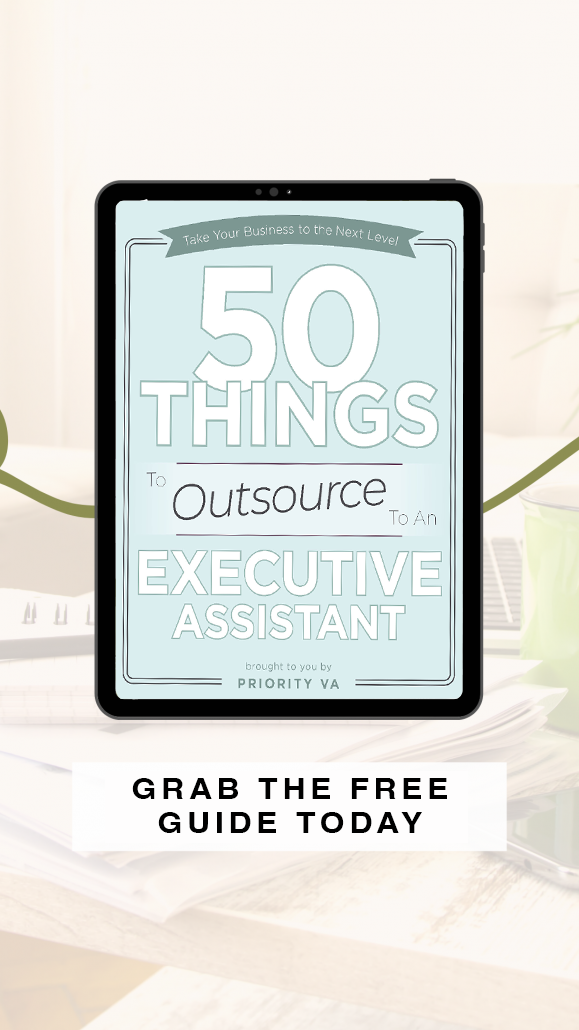Leaders often think that they don’t want to delegate because they believe it will take more time than doing the work themselves. The truth is, delegation saves you time and makes your business run smoother.
Unfortunately, even after you’ve hired an Executive Assistant, work can still stay on your plate.
Why are leaders afraid to delegate even when support is available? There are five reasons.
1. Delegation requires trust
It always goes back to trust.
When delegating outcomes, you need to be sure the person can do the work well and will not slack off or take advantage of their position if given too much responsibility.
Delegating without trusting can cause resentment in the relationship. It can also cause you to get frustrated if work isn’t being done well or according to your standards, so you take work back or stop delegating altogether.
Pro tip: Instead of trying to delegate everything at one time, identify two priority projects for your EA to own during onboarding. Give them time to do these few things well before amping up to give them more.
2. Delegation is new and unfamiliar
It’s not a secret that entrepreneurs are typically control freaks. It’s also not a secret that you’re often afraid of letting go — even if it means delegating some tasks to someone else because they do them better.
When you’re used to doing everything yourself, it feels weird to outsource something. It makes sense then that many leaders don’t delegate even when there is help available because it requires you to flex some new muscles and release control.
Pro tip: Be willing to slow down during the first 100 days of onboarding and be transparent. Open up to your EA about how you solve problems or approach certain tasks. Share what frustrates you, what makes you anxious and what you consider a job-well-done.
3. Delegation requires patience
Most entrepreneurs identify as quick-starts which makes slowing down difficult in order to train somebody up. It often feels faster and easier “if I just do it.” Unfortunately, this keeps you in the weeds and overwhelmed, which can prevent momentum and scale.
Pro tip: Before hiring, discipline yourself to document your processes either in a Google Doc or a Loom video. This will give your EA a lot of references during onboarding, which can help them acclimate more quickly.
4. Delegation requires relationship
When you hire an EA, you’re not just learning how to delegate or building a process for outsourcing. You are building a relationship with this new person and learning how to relate to your new assistant.
A lot of Leaders are ignorant of what an EA can bring to the table. Many of you expect an EA to be able to manage email or the calendar, but you may not be aware of their other hard skills, which can prevent additional delegation.
Pro tip: Learn more about your EAs hard skills AND interests. They are likely able to take more off your plate than you know, like project management, IT/tech and writing.
5. Delegation requires humility
As a Leader, it can be hard to let go of things you enjoy or are good at. It’s also hard if the person you are delegating to is still learning how to do that thing well or to your standard.
When we know we can do things better, we get frustrated when an EA doesn’t meet our standard.
Pro tip: Communicate your standards for success, either by providing documentation for how you would do it. Or, give your EA the “frame” for success and let them “paint the canvas” for how they would approach the work.
Despite your fears, control issues, lack of trust, impatience, ignorance and pride…you cannot be the one to do everything in your business.
If you’ve been burned by an EA before and are fearful to start again…don’t let your fears keep you from getting the support you deserve.
Priority VA can match you with your ideal teammate and do all the heavy lifting for you as well as provide 100-days of mentorship, so you can guarantee a strong start to the relationship. Schedule a free strategy session here.





